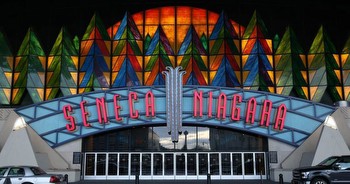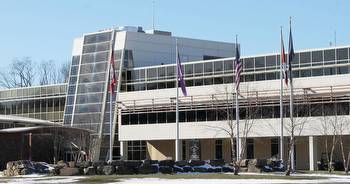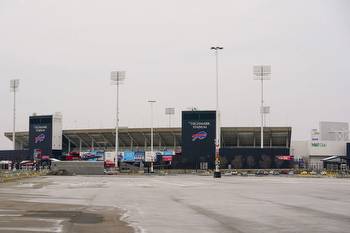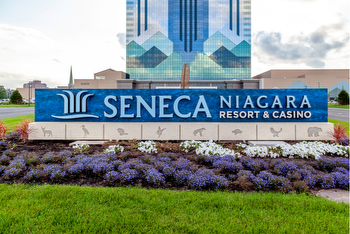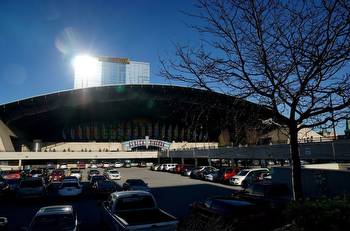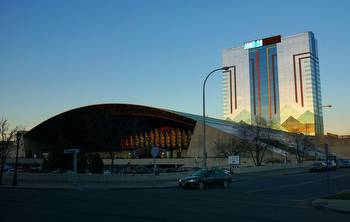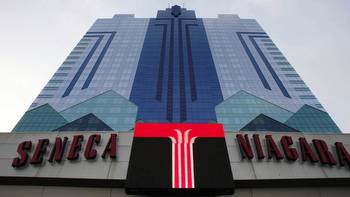New York sees third favorable federal court ruling in dispute with Senecas over casino payments

A new federal court ruling has again backed New York State in its years-long dispute with the Seneca Nation of Indians over millions of dollars in casino revenue payments. Issued by U.S. District Judge William M. Skretny, it is the third ruling supporting the state in the conflict.
In his ruling, Skretny said the tribe must abide by an arbitration panel’s 2019 decision, which awards the state a quarter of slot revenues from three New York casinos. The Senecas contend that this should be overturned because the secretary of the Department of the Interior did not review revenue-sharing payments for a renewal period of a 2002 agreement with the state.
The agreement allowed the Senecas to operate casinos in Niagara Falls, Buffalo and Salamanca. Skretny has now rejected Seneca Nation’s claim that the award should be overturned, reports Buffalo News, writing in his decision that the Interior Department’s “concerns regarding the legality of the renewal-period payments are not on solid ground.”
According to the judge, there is “insufficient” basis to conclude that Senecas would face “extreme and undue hardship” should the court not cancel its earlier decision. Moreover, he said it has not been established that vacating the judgment would not impose “a hardship on the State,” which has been “waiting to receive” the payments for more than four years.
In a statement to the previously cited news source, Seneca Nation President Matthew Pagels said the tribe was still reviewing the latest court ruling and would “carefully consider” all options available. “Protecting our agreements and the long-term viability and strength of our gaming enterprises, along with the thousands of jobs we provide in the local economy, is of paramount importance,” he said.
Meanwhile, Buffalo Mayor Byron W. Brown and Niagara Falls Mayor Robert M. Restaino celebrated the ruling, stating it confirms the obligation of the Senecas to make the payments to their communities, which have been denied millions in casino sharing for years now.
"This position has now been upheld multiple times in federal court and the arbitration process outlined in the compact," Brown said, according to Buffalo News. "I think it is time to move past this issue and for the payments to be made to the state and the local governments so that we can focus on the future of a relationship which has benefitted both Buffalo's residents and the Seneca Nation."
Brad Maione, a Gaming Commission spokesman, urged the Senecas to pay up, claiming it is now past time for the tribe “to honor its obligations” under the compact and the judgment. “The Nation should not continue to circumvent the judgment or avoid its clear obligations to the State and the communities that will benefit from the Nation making their revenue sharing payment,” Maione said in an email to the cited source.
The 2002 compact signed with the state granted the tribe exclusive rights to operate gaming venues in Buffalo, Niagara Falls and Salamanca. As part of the deal, the tribe committed to 25% of slot proceeds to be shared with the state.
Part of the casino revenue-sharing payments, which amounted to more than $100 million, was then expected to be passed along to the casino host cities. Local municipalities counted on these funds to help balance their budgets.
The New York State-Seneca Nation compact was set to run through 2023, and included an automatic renewal at the end of 2016. Neither side objected to it, which allowed the renewal to take effect for the remainder of the compact. However, Senecas stopped paying in 2017, maintaining that the renewal didn’t specifically call for further payments to the state.
In 2019, an arbitration panel decided against the tribe, while a federal court confirmed the arbitration award afterward. This ruling was later affirmed by the U.S. Court of Appeals for the 2nd Circuit. Since the start of the dispute, payments have now added up to about $450 million.
The conflict extended through 2021, as the Senecas asked, again, a federal court in April to intervene. They also requested a U.S. Department of the Interior review of the terms of the venue sharing, as outlined in the 2002 compact.








